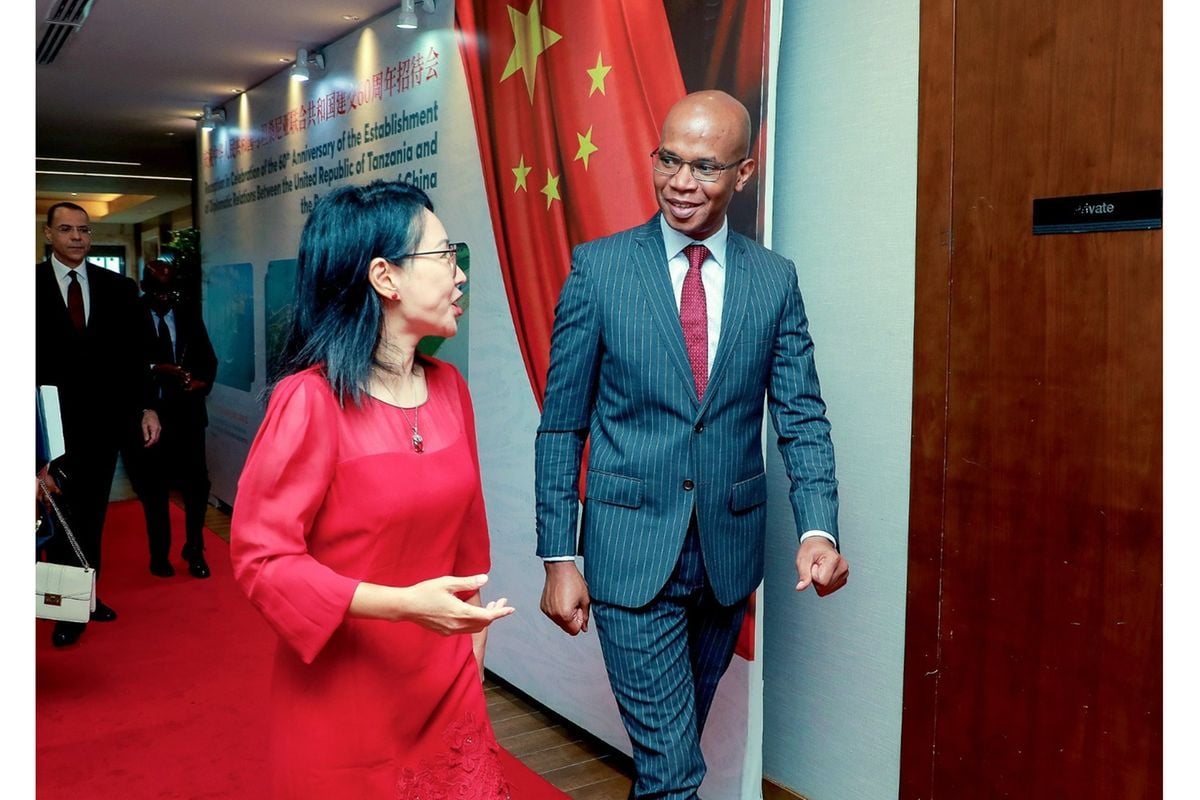Dar es Salaam. Tanzania imeahidi kuendeleza ushirikiano zaidi na nchi ya China ikiwa ni kuimarisha uhusiano wa kidiplomasia ambao umedumu kwa zaidi ya nusu karne.
Hayo yamebainishwa leo Jumatatu Aprili 15, 2024 na Waziri wa Mambo ya Nje na Ushirikiano wa Afrika Mashariki, January Makamba wakati wa sherehe za maadhimisho ya miaka 60 ya uhusiano kati ya China na Tanzania zilizofanyika jijini Dar es Salaam ambapo zimehudhuriwa na viongozi mbalimbali wa nchi hizo mbili.
Waziri Makamba amesema waasisi wa mataifa hayo mawili, Mwalimu Julius Nyerere, Sheikh Abeid Karume, Mao Zedong, Premier Zhou Enlai na wengine walianzisha na kujenga mshikamano ambao hauna budi kuuendeleza kwa nguvu zote.
“Hayati Mwalimu Nyerere alifungua njia alipotembelea Beijing Februari 1965, Waziri Mkuu wa China Zhou Enlai naye alikuja Juni mwaka huohuo.”
“Hata viongozi wa sasa, Rais Xi Jinping alitembelea Tanzania Machi 2013 wakati Rais Samia Suluhu Hassan alitembelea Beijing Novemba 2022 tangu wakati huo ustawi katika nyanja za maisha umekua ikiwa ni pamoja na elimu ya juu utalii na utamaduni,” amesema Makamba.
Amesema China ina historia kubwa hapa nchini akitolea mfano ujenzi wa reli ya Tanzania Zambia (Tazara) yenye urefu wa kilomita 1,868.
Hata sasa kampuni na wawekezaji wa Kichina wameendelea kuwekeza nchini katika ujenzi wa miundombinu kama barabara, kongani ya viwanda na hata Mkongo wa Taifa wa Mawasiliano na maeneo mengine ya kimkakati.
Amesema Rais Samia na Xi Jinping waliunganisha uhusiano kwa mikakati ya kina ya ubia wa ushirikiano, “kimsingi nchi hizi zimeunda ushirikiano wa kimkakati katika ngazi za kisiasa, kiuchumi na kijamii.
Akizungumza kwenye hafla hiyo, Balozi wa China nchini, Chen Mingjian amesema katika kuhakikisha maendeleo ya Tanzania yanazidi kushika kasi nchi ya China imejizatiti kuwekeza zaidi kwenye uchumi wa buluu, kidijitali na viwanda.
Mingjian amesema China wanafurahia uhusiano na Tanzania kama ulivyoasisiwa na viongozi waliopita ndiyo maana watu wa Jamhuri ya China wanaongoza kwa uwekezaji hapa nchini.
“China inabakia kuwa mshirika mkubwa zaidi wa biashara wa Tanzania kwa miaka minane mfululizo, mwaka 2023 kiasi cha biashara baina ya nchi hizi mbili kilifikia Dola za Marekani bilioni 8.78 ambayo ni zaidi ya Sh22.6 trilioni,” amebainisha Mingjian.
Akieleza matumaini yake katika miaka 60 ijayo ya ushirikiano wa nchi hizo mbili, Rais na Mtendaji Mkuu Kituo cha Sera za Kimataifa Afrika, Balozi Omary Mjenga amesema diplomasia itaongezeka zaidi na anauona uhusiano utakuwa zaidi ya hapa.
“Vyuo vya Kichina vinafundisha Kiswahili na hapa vinafundisha Kichina, hivyo itafikia pahala tunasikilizana vizuri matokeo yake uhusiano wa kitamaduni, uchumi utazidi kukua zaidi ya hapa,” amesema Balozi Mjenga.
Naye, Mwenyekiti wa Taasisi ya Mwalimu Nyerere, Joseph Butiku amesema maana ya diplomasia ni kuishi kwa kuelewana, na nchi hizi zimeelewana kwa muda mrefu katika Nyanja mbalimbali.
Ameshauri kwamba kinachotakiwa kufanywa hivi sasa ni kuongeza suala kama la uzalishaji wa mazao ambayo yanahitajika kwa kiasi kikubwa nchini China, jambo ambalo ni faida kwa uchumi wa nchi.
“Watu hawa wanataka vitu vingi vya uchumi na imefikia wakati wanawafundisha watu wetu kulima kilimo cha kisasa cha maparachichi ambayo yanahitajika huko kwao, kwa hiyo unaona ni jinsi gani kuna umuhimu na ushirikiano huu wenye tija,” amesema Butiku.
Source: mwananchi.co.tz













